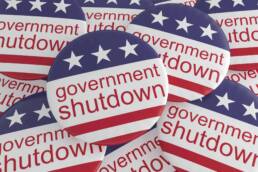With the government experiencing a shutdown due to the lapse in annual funding, many are concerned about the consequences in the realm of immigration. Fortunately, the majority of immigration matters are largely unaffected by the current situation. U.S. Citizenship and Immigration Services (USCIS) offices will remain open despite the shutdown. Individuals should attend scheduled appointments with USCIS. Additionally, USCIS will continue to accept most petitions and applications.
A large portion of immigration-related processes are already sufficiently funded or fee-based, which is why they are not affected for the time being. There are several USCIS operations that will be affected by the shutdown, as they are expired, suspended or have not been reauthorized. The following programs are based on appropriated funds, and are therefore nonoperational during the shutdown:
- EB-5 Immigrant Investor Regional Center Program: While the actual EB-5 immigration category is itself not impacted by the shutdown, the related regional centers are. The EB-5 regional centers are public or private economic units in the U.S. that are involved with promoting economic growth in the country. USCIS designates regional centers for participation in the Immigrant Investor Program. Regardless of the shutdown, however, the EB-5 program will continue to operate.
- E-Verify: E-Verify is a government program that allows employers to confirm that their employees are eligible to work in the U.S. The E-Verify program is largely voluntary, but some employers with federal contracts or subcontracts must participate. The program works by allowing employers to check information collected from an employee against Social Security Administration (SSA) records and Department of Homeland Security (DHS) records.
- Conrad 30 Waiver Program for J-1 Physicians: J-1 physicians are required to return to their home country for a two-year period following the completion of the exchange visitor program. The Conrad 30 Waiver program provides an exception to this requirement and allows J-1 physicians to remain in the U.S. provided they practice in certain authorized locations. The Conrad 30 program is not shut down completely; rather, the expiration affects the date by which a J-1 physician must have entered the U.S.
- Non-Minister Religious Workers: During the government shutdown, this special immigrant category will be affected. This category allows non-ministers working in religious vocations and occupations to immigrate to the U.S. or adjust to legal permanent resident (LPR) status. This category requires individuals to perform their religious work full-time in a compensated position.
If you have an immigration matter, do not hesitate to contact our office to set up a consultation with an attorney today!
Related Posts
November 12, 2025
TN Success Story: Three-Year Approval for a Chemical Engineer
October 29, 2025
Success Story: Essential Logistics Specialist E-2 Employee Visa
Ready to have Berardi on your side?
Whether you’re a business looking to hire or a professional hoping to relocate, immigration law can be complicated. But you don’t have to do it alone. Put our experience to work for you.



